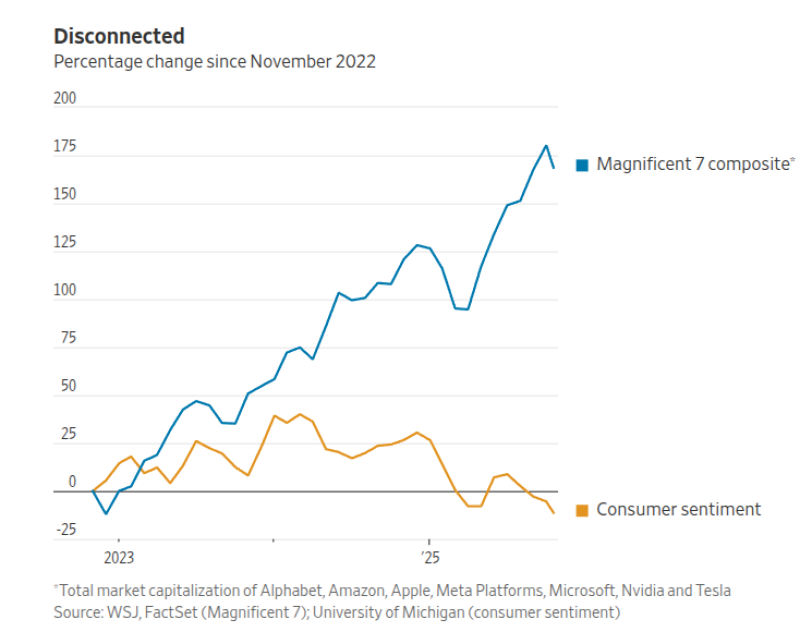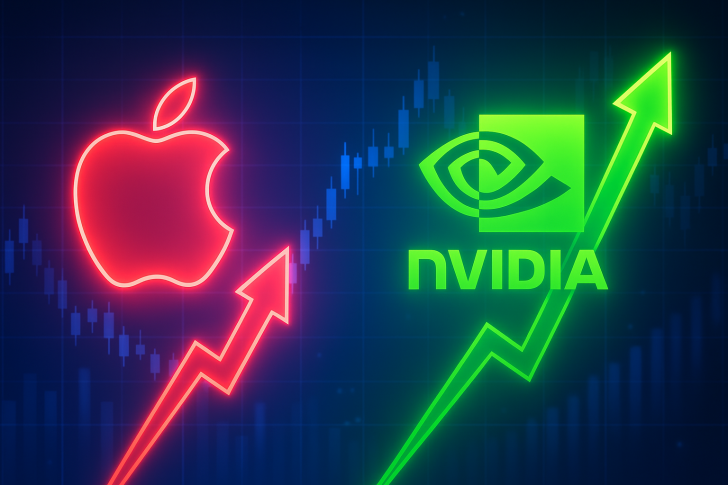⬤ A fresh analysis from the Wall Street Journal highlights a striking gap between the Magnificent 7's performance—AAPL, NVDA, AMZN, GOOGL, META, MSFT, and TSLA—and how regular Americans actually feel about the economy. Here's the thing: these AI-powered giants have jumped roughly 170% since November 2022, yet consumer confidence measured by the University of Michigan has stayed flat or dropped during the same stretch. The chart shows tech stocks rocketing upward while public sentiment moves the other way.

⬤ The numbers tell a fascinating story about how attitudes toward technology have shifted. Back in 1995, when the internet was taking off, about 72% of Americans said they felt comfortable with computers and the web, with only 24% expressing unease. Fast-forward to today, and the picture's completely flipped. Just 31% of people say they're comfortable with AI, while 68% admit they're uncomfortable. That's a massive swing—today's AI boom is happening against a backdrop of public skepticism rather than excitement.
⬤ Let's be real: enthusiasm for AI is mostly concentrated among the people building it—executives, engineers, and tech leaders pushing out new products at breakneck speed. Meanwhile, everyday workers see AI tools through a different lens. Many view them as threats that could replace their jobs or give unfair advantages to coworkers who learn the systems faster. This divide between boardroom optimism and workforce anxiety explains the widening gap in the data—stock prices for AAPL, NVDA, and their peers keep climbing while consumer sentiment stays depressed.
⬤ This growing separation between market performance and public mood reveals something important about where we are right now. AI companies continue racking up value at an incredible pace, but underlying discomfort among consumers could shape how quickly people actually adopt these technologies, how workplaces handle the transition, and how society views tech progress more broadly. The WSJ data suggests this tension is only getting sharper as AI accelerates, influencing both Wall Street narratives and Main Street expectations across the entire sector.
 Usman Salis
Usman Salis

 Usman Salis
Usman Salis


